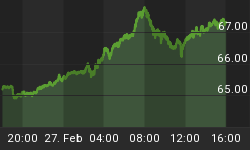Economists had been expecting great things for international tourism in 2020, but the spread of the coronavirus in China, and the lack of a cure, is turning great expectations into something quite different. As of the time of writing, the coronavirus has killed 1,665 people and infected more than 68,500 since it was first identified in December in China.
According to the Economist Intelligence Unit (EIU), because of the virus outbreak, the global tourism industry is likely to lose about $80 billion. Even worse, EIU says it won’t recover to pre-coronavirus levels for at least a year and a half.
So far, some 60 countries have implemented broad travel and immigration restrictions against China, and at least 30 airlines have suspended service to China, where hotel rooms are empty or emptying. The Hilton, for instance, has already closed 150 of its hotels in China.
That hits hard when you consider that China is the world's largest market for outbound travel. It even surged from 4.5 million travelers in 2000 to 150 million in 2018. Chinese tourists are also the world's biggest spenders, accounting for 16% of the world's total $1.7 trillion international tourism spending, according to the UN’s World Tourism Organization.
Their absence on the tourism scene will be felt most seriously across the Asia-Pacific region, which is heavily dependent on Chinese tourism. But there is really no region that will be spared the pain.
Last year, Chinese visitors spent $18 billion in Thailand, accounting for 30% of Thailand’s total tourism. And the projected damage to Vietnam’s tourism industry is as high as nearly $8 billion. Even though Indonesia hasn’t had any confirmed cases of coronavirus yet, its tourist island of Bali has seen 20,000 hotel bookings canceled.
Even parts of Europe and the Americas are feeling the heat of depressed tourism.
Related: Is A New Housing Bubble Forming?
Italy could lose $5 billion in tourism income this year as a result of the virus, and the United States will experience a loss of 1.6 million visitors from mainland China this year; and that means up to $6 billion less spent on travel and airfare.
Australia recently announced a travel ban on visitors from mainland China. Last year, China was the largest source for international visitors down under, spending $13.4 billion.
Moody’s Analytics estimates that the disruption caused by the coronavirus could lower the world’s GDP growth by as much as 0.3%. In dollar terms that’s probably around $200 billion. And that is only if the outbreak of the virus is contained in the short term.
So far, there is no known cure despite the fact that digital media is full of claims of miracle remedies, featuring everything from boiled garlic or Vitamin C to the likely fatal drinking chlorine dioxide, an industrial bleach. There are also quite a few drugs on the market marketed as a cure.
In Myanmar, Buddhist monks advise placing seven ground peppercorns on the tongue to ward off the virus. Indonesian health officials say relaxing and working less as a preventative measure. Saltwater gargling has also been entirely discounted.
As of late January, China has more than 80 running or pending clinical trials on potential treatments. Currently, scientists and doctors are exploring whether existing treatments for HIV, Ebola and malaria could combat the coronavirus.
In the meantime, there’s no cure for the tourism industry.
By Fred Dunkley for Safehaven.com
More Top Reads From Safehaven.com:
















